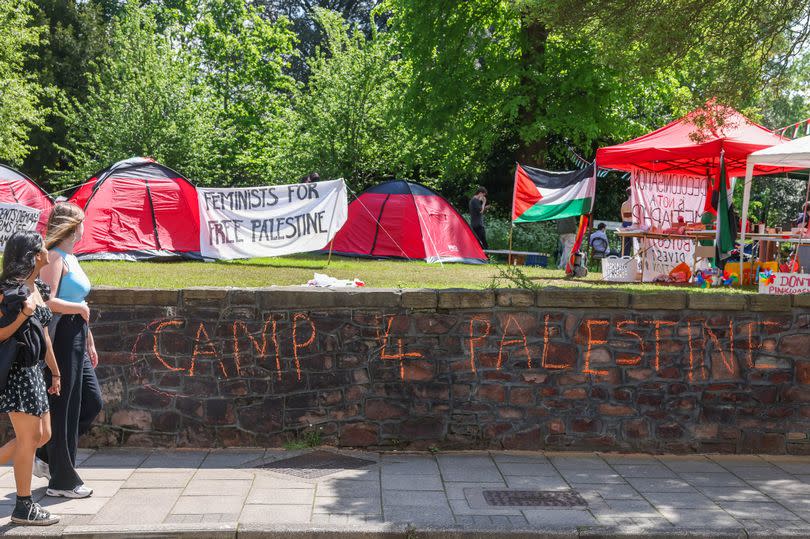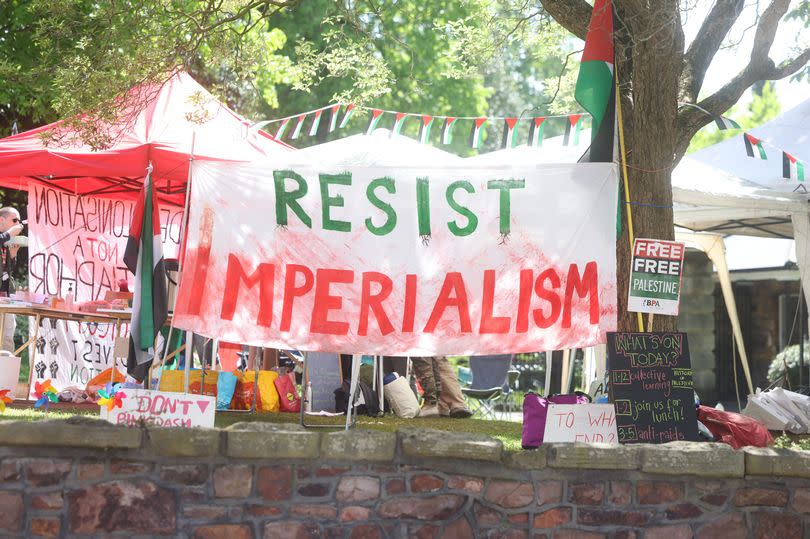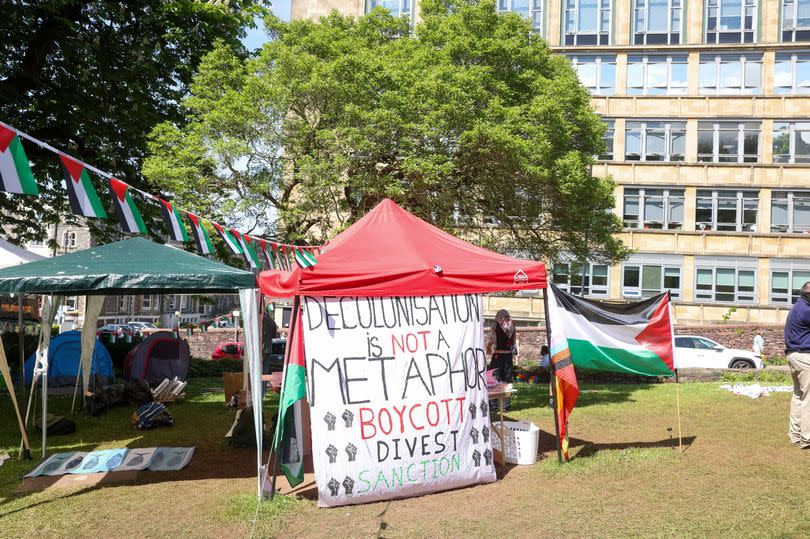Bristol University student camp will stay until institution 'ends links with Israel'

Students who have set up an encampment at Bristol University in protest against the war in Gaza, say they will remain there until ‘the university ends its complicity’ with Israel. The students, who are camping at Royal Fort Lodge, said they have already been asked to leave by the university security but have not yet been given any official notice.
The students who were inspired by protest camps at universities in the USA, including at Columbia University, arrived in the early hours of Wednesday, May 1. In the following two weeks the protest camp had grown in size from four to twenty-four tents.
Like previous student occupations at the vice chancellor’s office and the Victoria Rooms, the students are demanding that the University of Bristol cut ties with defence companies. In addition, those at the camp also want the institution to cut ties with Israeli universities.
READ MORE: Hundreds expected to attend funeral of Bristol aid worker killed in Israeli strike
The Bristol encampment has attracted support from the wider Bristol Palestine solidarity movement. On Friday (May 10) a large rally was held outside the camp.
Those living at the camp have the option of extra curricular learning, with lecturers visiting the camp to deliver sessions. They have a daily programme of workshops which have included sessions on the history of Israel and Palestine and a detailed look at the defence companies that have partnerships with the university.
The large US protest camps have garnered international attention, and in the UK university students have set up camps at over 15 campuses, including Oxford, Cambridge, Edinburgh, Leeds, Manchester and Newcastle.
After just five-days of a student encampment at Trinity College Dublin in Ireland, senior management made a pledge to divest from Israeli companies - starting with those “in the Occupied Palestinian Territories and appear on the UN blacklist.”

The students at the encampment said that although the Bristol University vice chancellor, Evelyn Welch had acknowledged the camp, she had not visited or engaged with the students. In a recent statement Prof Welch has stated that the university needed to remain impartial regarding the Israel-Gaza conflict and therefore would not be adopting any institutional position.
In regards to any ties with defence companies, Prof Welch added: “We live in a complex and increasingly insecure world with wars taking place in Ukraine and elsewhere, as well as in Israel-Gaza. In discussing our partnerships, we want to be open about whom we work with and why.” The open letter published on the university’s website has a link to their current investment policy which is set to be discussed in the Senate meeting in June.
Students at the Bristol encampment told Bristol Live that they would remain at Royal Fort Lodge until “the university ends its complicity” with the war in Gaza. But previous occupations at the university in response to the war in Gaza left after being given written notice of legal action.

The student who did not want to be named said that the occupation of the vice chancellor’s office ended after 28 days because they were given a possession order. A university spokesperson denied that this happened, having previously said that Bristol University did not plan on taking legal action against its own students.
The spokesperson added: “The students did not receive a possession order - they were given notice of a possession order hearing and they then decided to leave before that hearing happened.”
A University of Bristol spokesperson added: “We fully respect the rights of our students to peacefully protest within the law. We recognise the distress and impact on all staff and students at the University of the ongoing violence and conflict in Israel-Gaza.
“It is more important than ever that we sustain our shared values of mutual respect, support, and compassion for each other, whatever our individual views on the conflict. Every member of our community should feel safe and included on our campuses and we ask everyone to respect and support each other at this time.
“There is no place for any form of racism, antisemitism, islamophobia, discrimination, incitement, bullying or harassment at the University of Bristol. We are in close contact with all affected communities, including our student societies, to offer ongoing support as required.”

 Yahoo News
Yahoo News 
